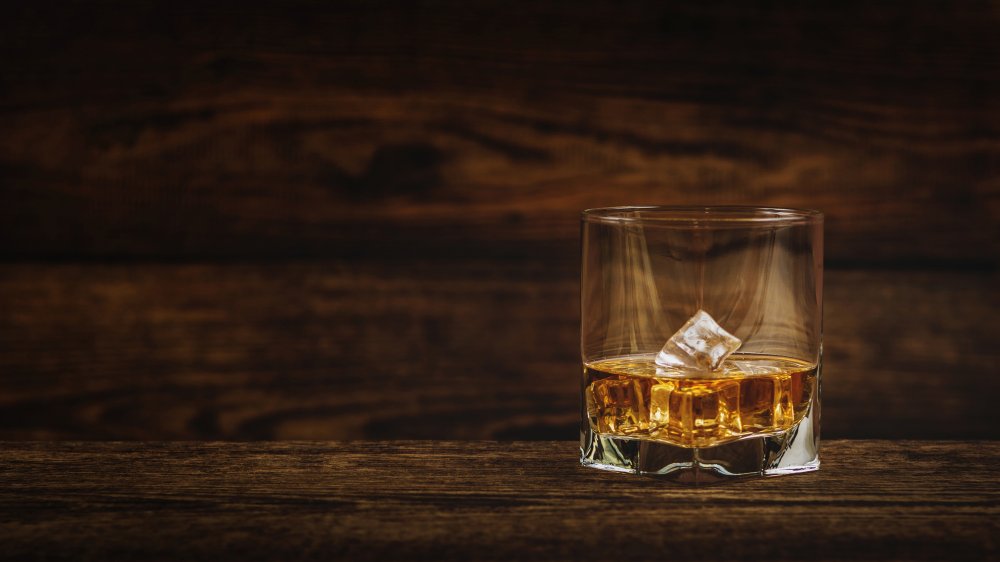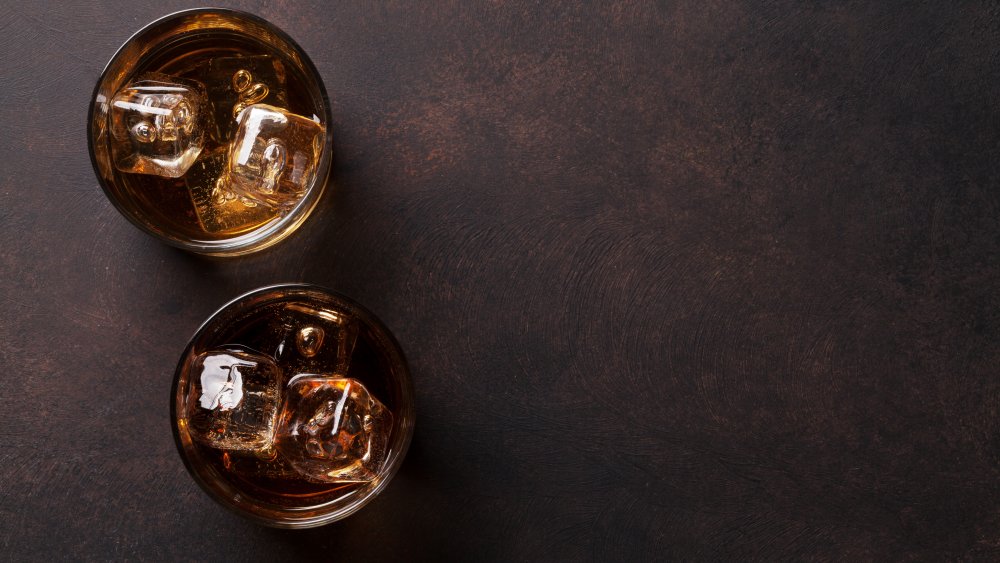Here's What Happens When You Drink Scotch Every Day
Just before silver screen star Humphrey Bogart passed away, his last words were alleged to be "I never should have switched from scotch to martinis" (via The Phrase Finder). And while there are some possible benefits associated with drinking gin and the Casablanca star likely didn't utter those words, the person who did might have been onto something. The Scottish version of whiskey, scotch has been made for more than 500 years, and there's a reason that it came to be known as "uisge beatha," Celtic for "water of life" (via Historic UK).
People have long held that scotch possesses medicinal qualities and treated it like a cure-all for day-to-day problems like colic and more significant conditions like smallpox. Happily, these conditions can be handled without alcohol these days, but scotch might still offer modern-day health benefits.
Drinking scotch in moderation might help your immune system
If you are feeling under the weather, a glass of scotch might alleviate symptoms such as sore throat and congestion. Huffington Post reports that hot boozy drinks, like a hot toddy made with scotch, clear up stuffy noses, while the alcohol content opens up blood vessels, making it easier to fight infection. There's even evidence that having a daily drink can boost immunity and resistance against viral infections (via Food Republic). In a 2013 study, scientists found evidence that moderate drinking may improve the body's response to both virus-fighting vaccines (via Science Daily). The researchers gave a group of 12 monkeys with a smallpox vaccine and trained them to drink alcohol. The monkeys which consumed moderate amounts of alcohol showed an improved immune response after 14 months compared to monkeys that didn't drink. This might also apply to humans, who have similar immune systems.
However, the researchers emphasized that they are were not giving people a green light to go drinking, especially for those with a history of alcohol abuse. This cold-curing and virus-fighting research doesn't apply to those that overdo it on a regular basis. In the 2013 study, heavy drinking impaired monkeys' immune systems. The same is true for humans. The Cleveland Clinic cautions that daily drinking can have detrimental effects on the immune system and damage the liver.
Drinking scotch daily may fight dementia and cancer
Several of the more surprising claims about daily scotch consumption come from Canadian Pharmacy King. The publication cites a 2011 research paper from Dr. David J. Hanson, of the State University of New York at Potsdam. During the course of his studies, the doctor found that folks who partook in a drink or two of whiskey on an everyday basis halved their chances of developing dementia or suffering from a stroke in their senior years. Hanson also found that scotch drinking benefits included a decreased risk of heart attack, osteoporosis, gallbladder disease, and an enlarged prostate. Since scotch is Scottish whiskey, it seems the findings would apply.
Many of these positive side effects of drinking scotch come from the antioxidant ellagic acid. Single malt scotch is especially rich in ellagic acid, even more so than red wine, a drink whose health benefits have been widely shared (via The Telegraph). Some have argued that due to this antioxidant, scotch also has cancer-fighting properties. However, Dr. Lesley Walker of Cancer Research UK cautioned against promoting scotch as a way to fight cancer, noting that "there is considerable data documenting the link between drinking excess alcohol and the increased risk of a number of cancers, particularly in smokers." Moreover, you don't have to drink scotch to get ellagic acid, which is also found in fruit.
Can a nightcap lead to a longer life?
Grace Jones, a woman who held the title of Britain's oldest person in 2018 at the age of 112. In an interview with Metro, Jones told said, "I never miss my nightcap. All I have is the whiskey at night. Whiskey is very good for you. I started having a nightly tot of it when I turned 50 so I've been having it every night for the last 60 years and I certainly have no intention of stopping now."
Several other centenarians have also credited their long lives to a daily dose of brown spirits. Men's Journal reported that adventurous 105-year-old, Jack Reynolds, spiked his morning tea and nightly lemonade, and Agnes Fenton attributed her century-plus lifespan to drinking Miller High Life and shot of Johnny Walker Blue Label (via Food and Wine). While kicking off a late-in-life scotch habit sounds appealing, Live Science counters with few good reasons why you should think twice.
Although some research suggests that moderate alcohol consumption can extend your life, it might simply show that healthy people are able to drink later in life, not that the drinking extended their lives. Drinking too much alcohol can increase your risk of certain diseases or even be fatal. Author Brandon Specktor wraps up the conversation thoughtfully: "The bottom line is: If you drink, drink moderately and because you enjoy it — not because you want to live forever."



